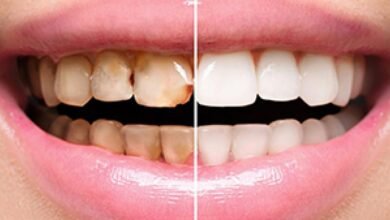Smooth Skin, Hidden Dangers? Link Between Botox and Cancer

Botox has ended up being the primary line of treatment for tens of millions of people who want to smooth wrinkles and look younger. But, the long-term consequences of Botox have been a supply of growing speculation: Does Botox cause cancer? Although Botox is considered safe for cosmetic and medical use, some fear that its mechanism of action could have unintended consequences. This article delves into the scientific evidence, separating fact from fiction regarding Botox and cancer.
Knowing Botox: What Is It?
What is Botox? Botox is a neurotoxin derived from Clostridium botulinum. It paralyzes temporary muscles, reducing wrinkles and treating medical conditions including migraines, muscle spasms, and excessive sweating. Since the FDA’s approval for cosmetic use in 2002, Botox has been the subject of much research, and its safety profile is well known. But that does not mean it is completely risk-free.
The concern: Does Botox cause cancer?
A question that one hears often during the decision-making process for administering Botox is: Does Botox cause cancer? To date, there is a lack of significant scientific evidence. Most studies determine that Botox stays well localized at injection sites and the body does not absorb it extensively. However, its mechanism as a blocker for nerve signals seems to raise quite a few hackles, though some speculate over the potential indirect effects on the cellular processes themselves.
Testing the Evidence
Several studies have investigated the possible long-term hazards of Botox, and no direct correlation with cancer has been established. A 2016 study on *Toxins* did not find evidence that Botox injections support tumor growth or increase the risk of cancer. In addition, the American Academy of Dermatology has reaffirmed that Botox is safe when administered by qualified professionals.
However, laboratory experiments show some evidence that the toxin can modulate cellular responses. For example, experiments carried out in closed systems with cancer cells have provided evidence that toxins can influence communication between cells. However, findings from these closed systems do not apply to people who undergo cosmetic or medical treatment with Botox injections.
Can Botox Cause Cancer? Looking at Theoretical Risks
Can Botox Cause Cancer? Though no established causation is noted, the theoretical risks are relevant for discourse. Several scientists have suggested that Botox may interfere with apoptosis, the natural process that leads to cell death and prevents uncontrolled cell growth, the sign and symptom of cancer. However, this theory is not supported by clinical data. The body metabolizes Botox over time, which diminishes the possibility of long-term systemic effects.
The FDA also closely monitors the safety of Botox, and until now, no reports have come up to indicate increased cancer risks due to the medicine. Most experts concur that the amounts used in medical and cosmetic use are virtually too small to cause any harm.
The Role of Individual Factors
Even though Botox has not been proven to be related to cancer, individual risk factors may determine levels of risk. Cancer can develop from existing health conditions, genetic predispositions, and lifestyle habits rather than from Botox injections. Those with compromised immune systems or in cancer treatment should consult with their doctors regarding using Botox to make sure it will meet their needs in terms of health.
Botox and Cancer: Myth vs. Reality
Most misinformation about Botox and cancer arises from misconceptions surrounding medical research. Some confusion may arise, for example, from studies of high-dose exposure or botulinum toxin used in lab-induced cancer models. Real-world usage, however, involves small, controlled amounts that do not build up in the body.
Other anecdotal reports also claim that people who have used Botox later developed cancer; however, correlation does not necessarily imply causation. Cancer developed in Botox users is more likely due to genetic and environmental factors instead of being caused by Botox injections.
Being Safe: What Consumers Should Know
For people worried with the concern does Botox cause cancer, here are some precautions:
- Obtain Botox injections from a qualified medical professional.
- Ensure the product is FDA-approved and sourced from reputable providers.
- Discuss any underlying health concerns with your doctor before treatment.
- Monitor for any unusual reactions and report them to a healthcare provider.
Final Verdict: Should You Worry?
Given the existing scientific evidence, the answer to whether can Botox cause cancer appears to be no. Even as research continues to closely monitor its long-term effects, Botox is a safe and effective treatment when applied correctly. The main key to ensuring any risks are minimized is getting injections by professionally trained personnel and staying updated about new research developments.
If you are considering Botox but have worries about Botox and cancer, visit a board-certified dermatologist or other specialist. The expert will be in the position to give you tailored advice according to your health history and current medical knowledge. As of today, Botox is simply a bestselling, FDA-approved cosmetic treatment without proven cancer risk. Read more



